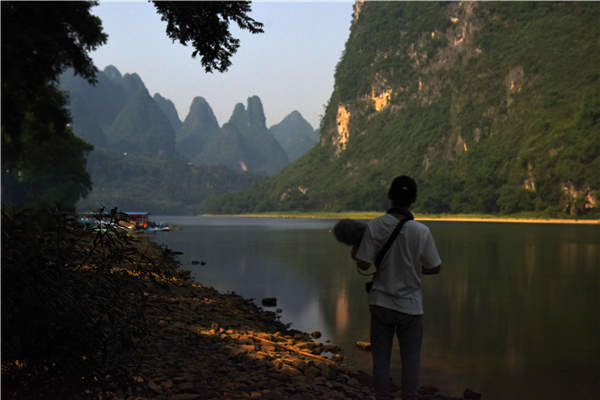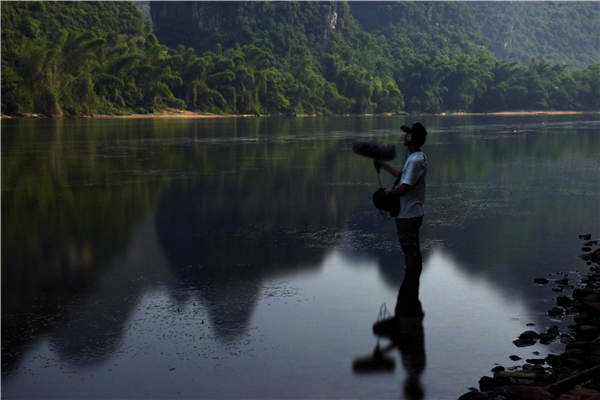 |
|
Shenggu, a podcaster [Photo provided to China Daily] |
Water dedicated artist
He has used different materials and fabrics upon which to record the sound of falling rain. Once he recorded the sound of an array mbira-a musical instrument with a unique harp-or bell-like sound-being struck by rain, a decision that resonated with users. "The combination of the array mbira and the rain is like that silky feeling between coffee and milk," one listener commented.
Rain, he notes, is also one of the hardest sounds to record, even though it rains a lot in Jiangnan, the region south of the Yangtze River, as it's all hard to predict-when it is going to rain, how heavy the rainfall and when it will stop. He once drove 50 kilometers to record a thunderstorm but returned empty-handed.
He usually keeps his recorder fully charged, and knows where he wants to record before the rain comes.
While recording the sound of nature, urban noise is an obstacle for Shenggu, such as the sound from cars or airplanes.
It is not just a case setting up the recorder and the microphone.
To record the pure sound of rain, he doesn't wear a raincoat, to avoid catching the sound of the rain hitting the material, and he has to remain still. As a result, he endures mosquito bites and is often left soaking wet.
When it thunders, he tries to get as close to the lightning as possible. Once, while recording at a lake, the thunder and lightning almost occurred right overhead.
He sees the recording work as his second job that he fits in with his main employment at a film and TV service company.
From the sound of stepping on snow in a forest at 1 am, the flowing spring water next to a maple tree at 4 am to a bee buzzing in the shrubs at 6 am, for the past seven years, he has kept exploring more of the sounds of nature around him.
 |
|
Shenggu, a podcaster [Photo provided to China Daily] |
Recording the sound of snow is one of his most unforgettable experiences. In January 2018, he went to the mountains near Hangzhou to record the sound of stepping on the snow. He took two pairs of shoes to make two different kinds of sound. He spent an hour recording his steps, the snow falling from leaves onto the ground and the breaking of a branch.
Besides Hangzhou, he has recorded his hometown, Guilin, Guangxi Zhuang autonomous region, as well as some cities that he has visited on business trips. He also plans to record the snow in northern China.
He will often take his recording equipment into the forest or to the river just to be a "gourmet" of nature's sound.
"When I bring my recording equipment and walk alone in the woods, I feel the peace in nature and all messy thoughts in my head can be thrown away," he says.
He adds that he will continue to record the sounds of nature, because, as time goes by, some may vanish like those no longer heard in the city, so he wants to preserve them in the recordings.
"My recordings are all authentic, so that even though the listener may not necessarily have been to that location, they feel a familiarity when hearing the sound," he says.